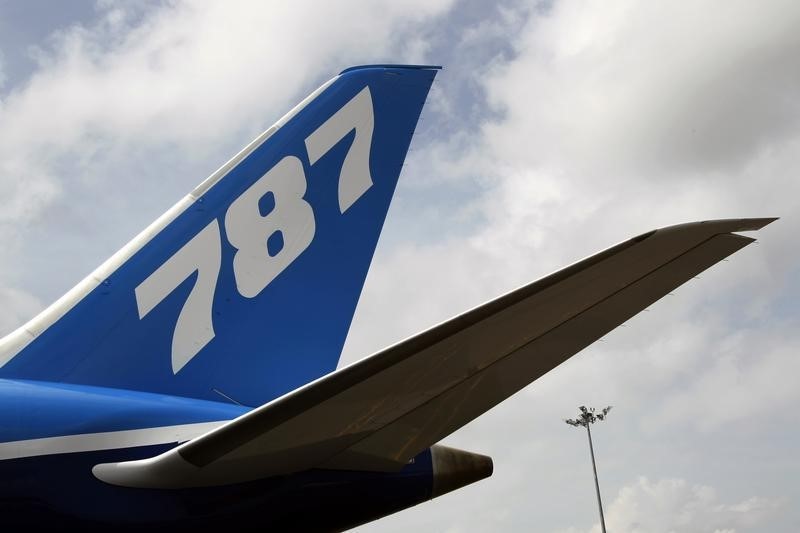This post was originally published on this site
https://i-invdn-com.investing.com/trkd-images/LYNXMPEJ4N0JN_L.jpg
WASHINGTON (Reuters) – Boeing (NYSE:BA) Co is deploying experienced pilots to airlines that are training their employees to fly Boeing aircraft, as part of a wider push to reduce aviation safety risks after two 737 MAX crashes in 2018 and 2019.
In 2022, a total of 125 so-called “flight operations representatives” worked with more than 60 airlines, Boeing officials told reporters in during a media event in Washington.
“When there is an operator that is getting a new fleet type, we send them out,” said Lacey Pittman, Boeing’s vice president of its global aerospace safety initiative. “What we’re currently doing is deploying where there is that need and a request.”
Boeing Chief Safety Officer Mike Delaney said that while it’s up to aviation regulators to ensure airlines are ready to operate new aircraft types, having Boeing pilots on the ground allows the company to address practices that may be concerning.
“We’ve had to make hard recommendations to some airlines, no doubt about that,” he said. “All of them have accepted either our recommendation … and in some cases we have offered additional resources from our company to help them do it.”
While Boeing historically has sent engineering and maintenance experts to embed with airlines, sending pilots on a semi-permanent basis to answer questions about flight operations procedures is a new endeavor for the company.
Boeing hopes to recruit additional flight operations representatives – who are mostly former retired airline pilots with more than 13,000 flight hours under their belt, Pittman said.
However, airlines’ demand for training is high, and the older age of Boeing’s pool of existing representatives leads to natural challenges in recruiting and retaining a workforce.
“One challenge is that pilots are a scare commodity,” Delaney said. “This is going to be a continuous (effort) trying to keep the pipeline full.”
Delaney and Pittman spoke to reporters during a media event tied to the roll out of Boeing’s second annual safety report, required by a 2021 legal settlement over the 737 MAX crashes which killed 346 people.
Other initiatives highlighted by Boeing officials included a machine learning algorithm developed by the company and the Federal Aviation Administration, which scours “service difficulty reports” that describes aircraft system malfunctions and identifies trends in the data.

